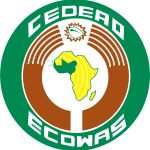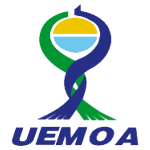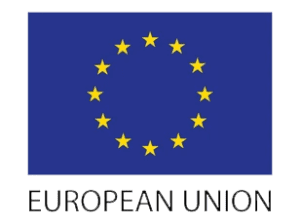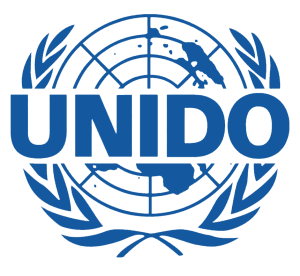Nigeria officially called the Federal Republic of Nigeria is the largest African country in terms of population. Nigeria, whose capital is Abuja, has a population of about 200 million people. The official language of Nigeria is English and the country’s main export commodity is crude oil.
Value Chains
Textile and Garment
The Nigerian textile and clothing industry has strong growth potential due to the availability of cotton and the large size of the domestic market of over 170 million people.
There is a need to promote “made in Nigeria” products in the face of the huge local market. Nigeria used to be a major exporter of clothing to the West Africa region.
The country’s first modern textile industry, the Kaduna Textile Mill, started production in 1956. Kaduna was established to process cotton produced in the northern part of the country. In the 1970s and 1980s, the Nigerian textile industry became the third-largest in Africa.
Thanks to the federal government’s intervention fund (100 billion naira) for the cotton, textile and clothing industry, the sector has begun to develop significantly.
Several segments of the sub-value chains have played an important role in the country’s economic development and offer significant employment opportunities for women and youth.
WACOMP will help further improve textile and clothing value chains and add significant revenues to Nigeria’s GDP.
Hides and Skin
A regular supplier of leather to European markets, Nigeria produces one of the best leathers in the world.
The Nigerian leather industry can be defined in two categories: the industrial sector, which covers 90 per cent of exports, and the traditional/craft sector (10 per cent of exports). Hides and skin belts are mainly produced in the Northern States. The bulk of leather production and processing is carried out in the most vulnerable states of the country. Activities related to the leather industry contribute significantly to poverty reduction in this region.
The Nigerian leather sector includes farmers, producers and processors, local purchasing agents and service providers. Traditional and industrial tanneries export semi-finished leather products or supply their products to local processors. The latter is then processed into finished products and exported. Sheep and lamb leather is mainly exported to Asian markets, while processed goat leather is mainly destined for Europe. This sector is included in the National Industrial Revolution Plan (NIRP) and is expected to increase access to economic opportunities for the population, including young people and women.
Ginger
Nigeria is currently one of the largest ginger producers in the world and a major producer in Africa with a production capacity of nearly 523,000 metric tonnes per year.
In Nigeria, there are a few large-scale commercial farms, but most Nigerian ginger production is carried out by smallholders. Smallholders make up about 90% of the sector. Ginger is produced in the northern part of the country. The sector has created employment opportunities for many women and young people. Actors in the value chain (such as producers, processors, service providers and exporters) engage women in various activities within the ecosystem that ultimately have a positive knock-on effect on the economic status of the country.
In recent years, Nigerian ginger exports have increased by 5.6% per annum to reach over $42.5 million in export value.
The programme will make a significant contribution to improving Nigeria’s quality standards in ginger production, to expand its export potential to other parts of the world. It will also improve trade links between producers, processors, traders and marketers.
Tomatoes and Pepper
Nigeria is currently the second-largest producer of fresh tomatoes and peppers in Africa, producing much of the fresh tomatoes in the region. Over the last decade, fresh tomatoes production in Nigeria has increased by 25%, from an estimated 1.8 million tonnes to 2.3 million tonnes.
To stimulate and increase domestic production, improve value and attract more investment, the Federal Government of Nigeria announced a new tomato policy in 2017. The policy aims to discourage imports by increasing tariffs on tomato concentrate. Subsequently, the inclusion of tomato production and processing activities for investment incentives is a positive development. Incentives such as tax exemption and the introduction of zero % import duty on greenhouse equipment have also helped to improve production in the tomato industry.
With all this, there is still enormous potential to encourage agricultural-based initiatives through proper training and value chain improvement. Tomatoes and peppers, in particular, are included in the National Industrial Revolution Plan (NIRP). This approach is expected to contribute to improving the level playing field and enhancing Nigeria’s competitiveness in tomato and pepper production.
Planned Activities
In Nigeria, the identification and formulation process led to the selection of the following four value-chains:
- Ginger: Due to poor processing facilities, Nigeria cannot meet international market standards. Trade links between producers, processors, traders and traders remain a challenge;
- Tomatoes and peppers: the sectors have only a few emerging crop programs run by processors. However, there is still enormous potential to be tapped that could attract investment;
- Clothing: the size of the local market requires the promotion of ‘Made in Nigeria’ products. In the past, Nigeria exported most of its clothing production to the rest of West Africa. Several segments of the industry offer important employment opportunities for women;
- Leather and hides: the objective is to reposition the leather sector and improve its quality, at a competitive price that will enable it to take advantage of the lower cost of transporting products to the local market and to realize the potential for integration with Niger in terms of product development and market access.
These four value chains are included in the National Plan for the Industrial Revolution (PNRI). This approach should help to optimize access to economic opportunities in the four value chains and promote the principles of ESM in the enterprises involved in these value chains.





